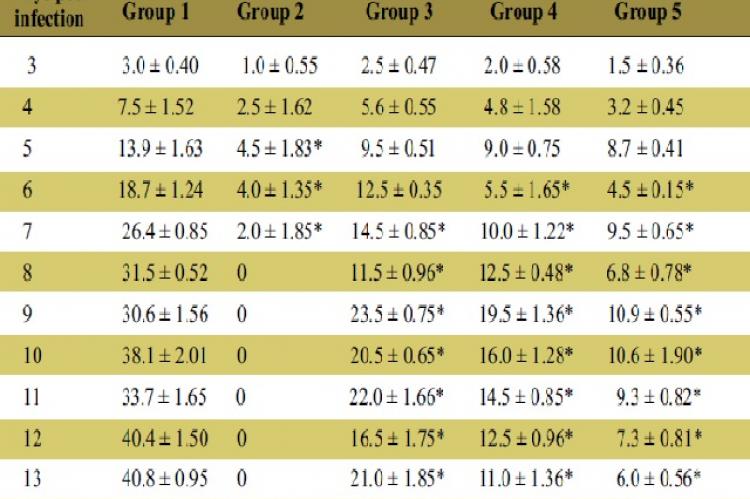Morinda lucida (Rubiaceae) is a tropical plant commonly used in western Nigeria for the treatment of malaria. Aqueous extract of leaves of Morinda lucida was investigated for anti trypanosomal activity, using albino rats infected with Trypanosoma brucei brucei. The haematological effect of the extract was also studied. Five groups comprising eight rats per group were infected with T. brucei brucei using 0.5ml of donor blood corresponding to 3.6 x103 parasites. Group 1 served as the control and received 10ml/kg body weight of distilled water. Group 2 received 3.2mg/kg body weight of diminazene aceturate (berenil), while groups 3, 4 and 5 were treated with 0.2ml of extract corresponding to 100, 200 and 400mg/kg body weight respectively, starting from 24 hours post infection. Hematological parameters were determined after the rats were sacrificed on 14th day post infection. There was a significant dose-dependent reduction (p < 0.05) in the parasite count with 5.5 observed in the dose of 400mg/kg body weight, followed by 10.5 and 22 for 200 and 100mg/kg body weight as compared with the control value of 42.8 on 14th day post infection. The red blood cell count and haemoglobin concentration were observed to be higher in treated rats than in control rats; while the white blood cell count was high in the control group. This study shows that the aqueous leaf extract of M. lucida possess trypanocidal properties and could be useful as a source of new trypanocidal agent from medicinal plants.
View:
- PDF (420.29 KB)


